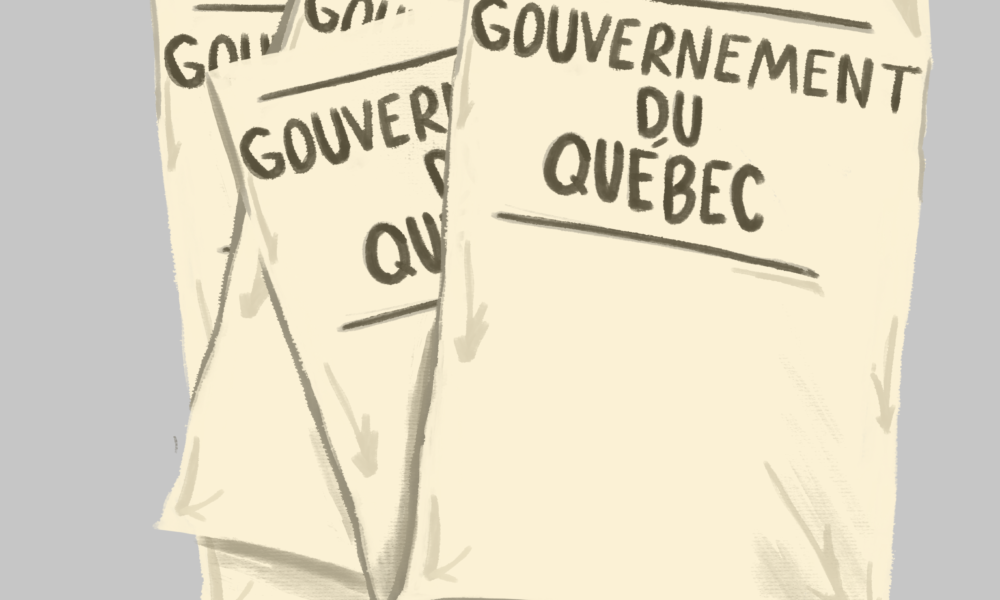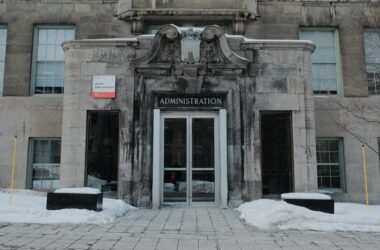Last March, the city of Montreal provided a new guide for frontline workers. The internal guide, obtained by the Montreal Gazette, is titled, “Exemplary Conduct in the French Language: Mechanisms for Informing the Public,” and offers instructions on how government employees should speak to anglophone customers. One sample script reads: “We are delighted to serve you in French. Do you understand me if I continue in this language?”
If the citizen does not understand French or demands service in English, employees are to inform them about legal restrictions on providing services in English and provide an informational pamphlet, two versions of which exist: one French and one bilingual. Yet, only the French version can be displayed in public; the other must either be requested by the citizen or provided at the employee’s initiative.
That is to say that, if a hypothetical English-speaker enters a government building, it would be impossible for them to discover the government’s shift in language services policy: All the publicly accessible pamphlets that would inform of such a policy change are in French—the language which, presumably, they cannot read if in need of such a pamphlet.
This Kafkaesque insanity represents the latest stage in Montreal’s municipal compliance with Bill 96, the Coalition Avenir Québec (CAQ)’s 2022 expansion on the Charter of the French Language.
The Charter of the French Language, commonly known as Bill 101, was introduced in 1977, when francophones earned significantly less than anglophones who dominated Montreal’s corporate elite. Immigrants primarily assimilated into English, and French-speaking Quebecers seemed an archaic underclass on its way towards total demographic obliteration. In this context, the Quiet Revolution occurred. In 1960, “Québécois” was not yet a word used in common parlance. By 1976, a newly elected sovereigntist provincial government received a mandate to call for an independent Quebec nation.
45 years later, Bill 96 requires that government services be provided exclusively in French. Thus, Montreal, with its long history of providing bilingual public services, now puts forth guidelines instructing workers on how to assert French exclusivity.
Today, francophone hegemony is the norm across Quebec. The lofty ambition set forth in the 1970s of maintaining a French island within the vast swaths of English-speaking North America has been virtually achieved. The unilingual anglophone elite have all but entirely vanished. Most anglophones emigrated post-Bill 101; those who stayed became increasingly bilingual.
Today, almost 95 per cent of all people in Quebec speak French. Virtually no large English-speaking population exists in Quebec outside of Montreal: The CAQ essentially targets Montreal specifically. Attention must then be afforded to the ideology of the CAQ, and of its founder and leader François Legault, who views the further diminishment of English in Montreal as a war waged by honest Quebecers against the urban anglophone elite.
Before the 2023 McGill tuition hikes were announced, Quebec’s Minister of the French Language stated: “It’s time to regain some ground.” Prior to his inaugural term, Legault urged CAQ supporters to push for a new Quiet Revolution. This sentiment is especially popular with rural voters who likely hold inherent skepticism against large urban conglomerations, with linguistic differences serving as a conduit for punishment of the cosmopolitan elite.
When will this nationalist impulse be satiated? When government services are rendered entirely in French? When “bonjour-hi,” alongside the casual bilingualism it implies, is entirely eliminated from common practice? When Montreal’s iconic English universities are francized or destroyed? Populism will always seek more enemies, and in need of an out-group to pit itself against, the CAQ inevitably seeks complete eradication of English language use in Montreal. The mere fact that French will always remain a minority language in North America is bound to produce linguistic tension. In some sense, it must necessarily induce linguistic protectionism, lest French be reduced to a cultural curiosity rather than, as the Quebec government sees it, “the common language of the Québec nation.” Few would argue that the protection of French is entirely unnecessary in the maintenance of a Quebecois nation. The question is if, this time, this tightening of legislation perhaps seeks an enemy that is no longer potent.









